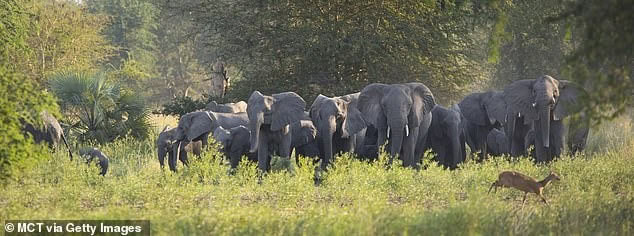In the face of relentless poaching pressure, elephants, one of the planet’s most majestic and intelligent creatures, have resorted to a remarkable survival strategy: evolving to shed their tusks. Long prized by humans for their ivory, elephant tusks have made these gentle giants prime targets for poachers, leading to a devastating decline in their populations across Africa and Asia. However, in a fascinating display of adaptation, some elephant populations are now shedding their tusks as a means of survival against the threat of illegal hunting.

The phenomenon of elephants evolving to be tuskless is most prevalent in areas where poaching has exerted the greatest pressure on elephant populations. In regions where the ivory trade is rampant and poaching rates are high, elephants with smaller or absent tusks are more likely to survive and reproduce, passing on their genes for tusklessness to future generations.
This evolutionary response to poaching pressure is a clear example of natural selection in action. By favoring traits that confer a survival advantage in the face of human-induced threats, elephants are adapting to their changing environment in real time. In areas where poaching has been particularly severe, the prevalence of tuskless elephants has increased significantly, suggesting that this trait is becoming more common as a result of selective pressures.

While the loss of tusks may seem like a small price to pay for survival, it has significant implications for elephant behavior and ecology. Tusks play a crucial role in activities such as foraging, communication, and defense, and their absence can impact the social dynamics and behavior of elephant herds. However, in the face of the existential threat posed by poaching, the benefits of tusklessness in terms of survival outweigh the costs, driving the evolution of this remarkable adaptation.

The evolution of tusklessness in elephants serves as a poignant reminder of the profound impact that human activities can have on the natural world. By driving selective pressures that shape the evolution of other species, we are fundamentally altering the genetic makeup of entire populations and ecosystems. As we continue to grapple with the consequences of our actions, it is imperative that we work to address the root causes of poaching and illegal wildlife trade, ensuring a future where elephants—and all of Earth’s creatures—can thrive in harmony with their environment.



